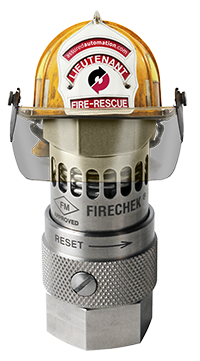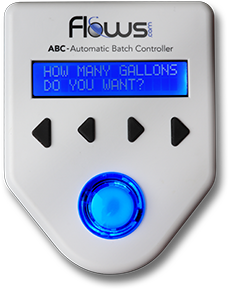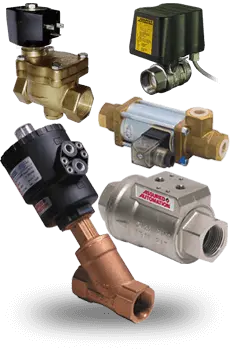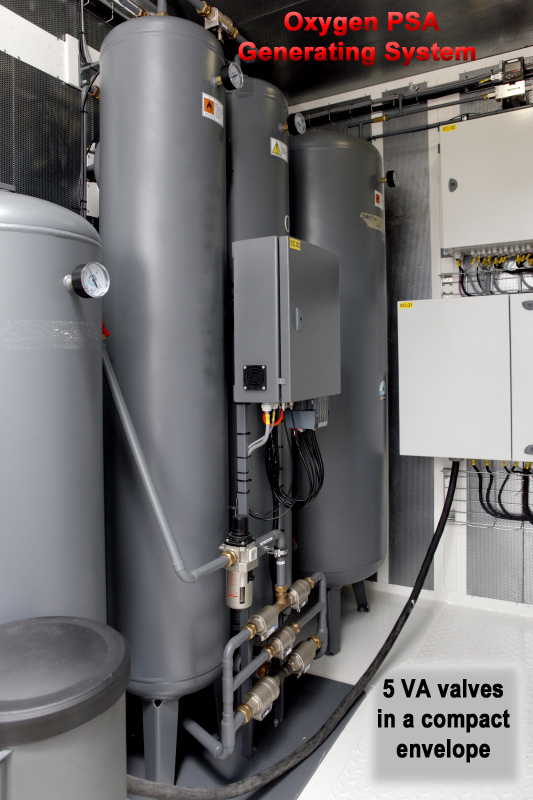
In the world of gas separation and purification, Pressure Swing Adsorption (PSA) systems are indispensable . These systems play a crucial role in generating high-purity nitrogen and oxygen gases, catering to a myriad of industries ranging from healthcare to manufacturing. However, the efficiency and reliability of PSA systems heavily rely on many components, with valves being among the most critical.
In recent years, the advent of compact automated valves has revolutionized the functionality and performance of PSA systems. These valves offer many benefits, ranging from enhanced precision to streamlined operations, ultimately leading to improved productivity and cost-effectiveness.
The Basics of PSA Systems
Before delving into the significance of compact automated valves, it’s important to understand the fundamentals of PSA systems. These systems utilize adsorbents to selectively adsorb specific gases under pressure. By alternating between high-pressure adsorption and low-pressure desorption cycles, PSA systems can effectively separate gas mixtures, yielding high-purity nitrogen and oxygen streams.
The Role of Valves in PSA Systems
Valves act as the gatekeepers of PSA systems, facilitating the precise control of gas flow and pressure throughout the adsorption and desorption cycles. Solenoid valves have long been employed for this purpose but are prone to leakage past the diaphragm over time and coil burn out. Ball valves were also used but are bulky and have a limited life cycle.
Compact Automated Valves: Redefining Efficiency
Compact coaxial valves and angle body valves represent a significant leap forward in the realm of PSA systems. These valves, often using advanced pneumatic or electric actuators, have a compact form while providing precise and rapid control over gas flow and pressure. Let’s explore some of the key advantages they bring to the table:
- Space Optimization:
- Coaxial and angle body valves are designed to occupy minimal space within PSA systems, allowing for more efficient utilization of limited real estate in industrial settings.
- Enhanced Speed:
- The short stroke, linear motion and minimal air consumption allows for travel in milliseconds.
- Improved Reliability:
- The linear stroke design and multiple seals of the compact valves allow for long life and less downtime vs rotary valves. The coil in our electric coaxial valve body is very large-eliminating coils burning out. Customers have experienced millions of cycles with our coaxial and angle body valves.
- Cost Efficiency:
- In many sizes, our coaxial and angle body are less expensive than traditional ball and solenoid valves. Their long-term benefits in terms of productivity gains, energy savings, and maintenance costs make them a cost-effective solution in the grand scheme of PSA system operation.
Enhancing Efficiency with Assured Automation Compact Automated Valves
Assured Automation offers a comprehensive range of products ideally suited for integration into PSA systems, each catering to specific needs and requirements.
Angle Valves:
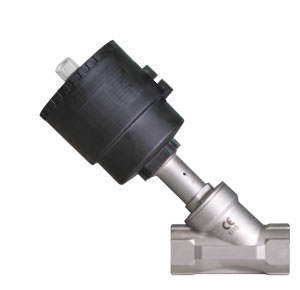
Angle valves play a critical role in the functionality and efficiency of PSA systems, offering some of the highest valve life cycles (up to 5 million). These valves are strategically positioned at key junctures within the system, allowing for precise modulation of gas flow during the adsorption and desorption cycles.
Their angled design facilitates seamless integration into the intricate network of pipelines and chambers within PSA systems, optimizing space utilization while providing Cv flow rates.
Furthermore, angle valves offer enhanced flexibility in system design and configuration, enabling engineers to tailor PSA setups to specific application requirements with ease.
Coaxial Valves:
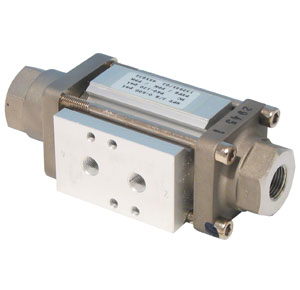
Within PSA systems, the RSG Series coaxial valves serve as fundamental components facilitating the precise control and direction of gas flow. The RSG is designed for higher pressures, 2 & 3 way design, with fully electric options.
These valves feature concentric inlet and outlet ports, allowing for streamlined gas passage and minimal pressure drop, thereby maximizing system efficiency.
Coaxial valves are particularly advantageous in PSA setups where space is limited, as their compact footprint enables seamless integration into tight configurations. Their robust construction and reliable operation make them ideal for demanding industrial environments, ensuring consistent and uninterrupted gas supply for various applications.
On-Off Valves:
The VA Series “Valve + Actuator” On-Off Valves represent a cutting-edge solution for optimizing the performance of PSA systems. By seamlessly integrating valve and actuator functionalities into a single unit, these valves offer unparalleled convenience and efficiency in gas flow control within PSA setups.
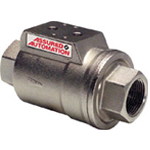
Their robust construction and precise operation make them ideal for critical applications where reliable on-off control is essential. In PSA systems, these valves can be strategically positioned at key points to regulate the flow of gases during different stages of the adsorption and desorption cycles.
Additionally, their compact design and compatibility with automation systems enable seamless integration into existing setups, further streamlining operations and maximizing system uptime.
The VA Series is designed for lower pressure applications (<150psi). They are a compact and low cost option for PSA Systems.
Applications Across Industries
The adoption of compact automated valves impacts a multitude of industries where PSA systems find application. From medical gas supply in healthcare facilities to inert gas generation in food packaging, these valves play a pivotal role in ensuring the reliability and efficiency of gas separation processes.
Conclusion
In the field of PSA systems for nitrogen and oxygen generation, the integration of compact automated valves enhances a new generation of efficiency, precision, and reliability.
As industries continue to demand higher purity gases for various applications, the role of these valves in optimizing PSA system performance becomes increasingly indispensable.
